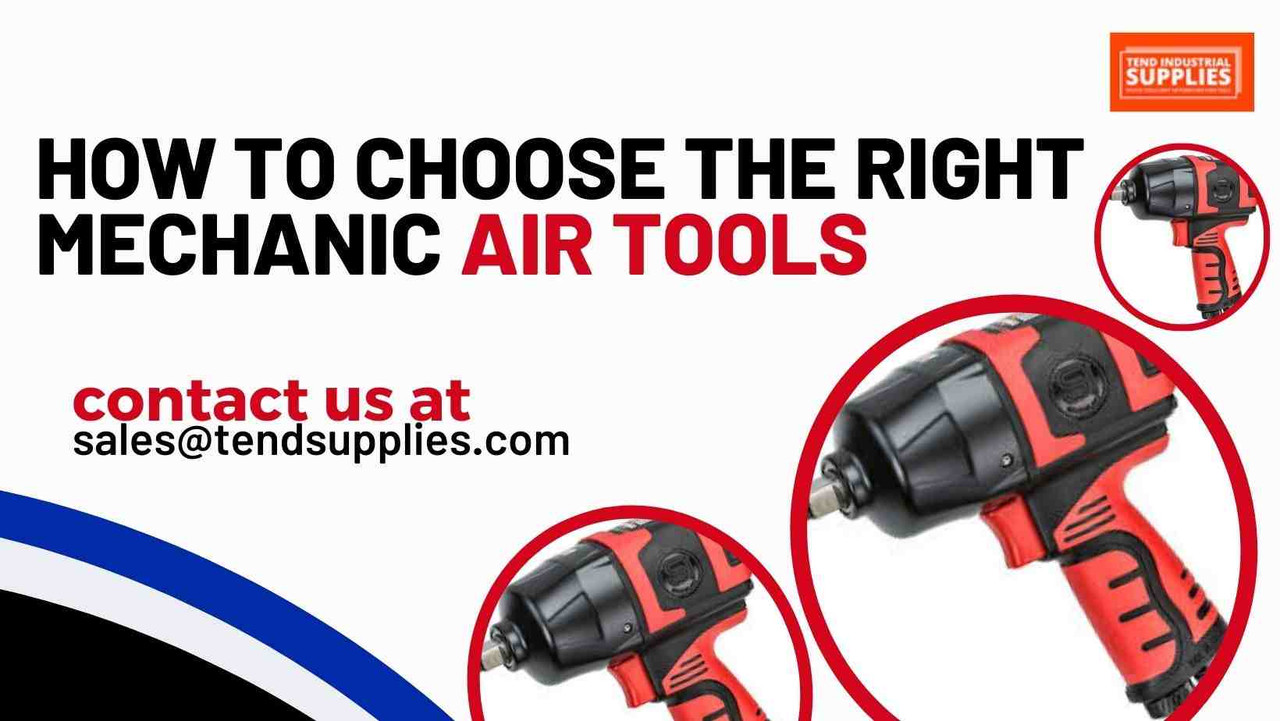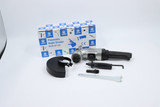How to Choose the Right Mechanic Air Tools
Selecting the right mechanic air tools is crucial for enhancing productivity and ensuring the quality of your work. With a wide variety of tools available, each designed for specific tasks, making the right choice can be daunting. This comprehensive guide will help you understand the key factors to consider when choosing mechanic air tools and how to select the best tools for your needs.
Key Takeaway
Choosing the right mechanic air tools involves understanding your specific needs, assessing the tools’ power and compatibility, and considering factors such as durability, ergonomics, and brand reputation. By making informed decisions, you can enhance your productivity and ensure the quality of your work.
Importance of Choosing the Right Air Tools
Mechanic air tools are invaluable in automotive repair and maintenance. They provide the power and efficiency needed to perform tasks quickly and accurately, from loosening stubborn bolts to cutting through metal. Choosing the right tools can make a significant difference in your work quality and productivity.
Factors to Consider When Choosing Mechanic Air Tools
1. Type of Work
Consider the specific tasks you will be performing. Different air tools are designed for various applications, such as:
- Impact Wrenches: Ideal for loosening and tightening bolts.
- Air Ratchets: Perfect for working in tight spaces.
- Air Hammers: Used for cutting, chipping, and removing rust.
- Die Grinders: Suitable for precision grinding and polishing.
- Air Drills: Versatile for drilling and reaming.
2. Power Requirements
The power of air tools is measured in torque (for wrenches and ratchets) or RPM (for drills and grinders). Ensure the tool's power meets the requirements of your tasks. For heavy-duty work, higher torque or RPM is essential.
3. Air Compressor Compatibility
Air tools require a compatible air compressor to function correctly. Check the air pressure (PSI) and airflow (CFM) requirements of the tools and ensure your air compressor can meet these specifications.
4. Durability and Build Quality
Invest in tools made from high-quality materials such as steel or composite polymers. Durable tools will withstand heavy use and last longer, providing better value for money.
5. Ergonomics
Ergonomically designed tools reduce user fatigue and increase comfort during prolonged use. Look for features such as comfortable grips, lightweight materials, and balanced designs.
6. Brand and Warranty
Choose reputable brands known for their quality and reliability. Consider the warranty offered, as it reflects the manufacturer’s confidence in their product. A good warranty also provides peace of mind and protection for your investment.
Popular Mechanic Air Tools and Their Uses
Air Impact Wrench
Uses
- Loosening and tightening bolts and nuts.
- Automotive repair, heavy machinery maintenance, and construction projects.
Key Features
- High torque output.
- Lightweight and ergonomic design.
- Variable speed trigger.
Air Ratchet Wrench
Uses
- Working in tight spaces, such as engine repairs.
- Assembling components in confined areas.
Key Features
- Compact size and high torque.
- Adjustable speed control.
- Durable construction.
Air Hammer
Uses
- Cutting through metal, removing rivets, and chipping away rust.
- Removing hardened materials and performing demolition tasks.
Key Features
- High BPM and interchangeable chisels.
- Heavy-duty build and adjustable power settings.
Air Die Grinder
Uses
- Precision grinding, sanding, honing, and polishing.
- Automotive repair, metalworking, and fabrication tasks.
Key Features
- High RPM and compact design.
- Variable speed control and durable construction.
Air Drill
Uses
- Drilling, reaming, and mixing.
- Suitable for automotive, construction, and DIY projects.
Key Features
- High speed and ergonomic design.
- Variable speed control and keyless chuck.
Innovations in Mechanic Air Tools
Advanced Ergonomics
Newer air tools feature improved ergonomic designs, making them more comfortable to use for extended periods. This includes better grip designs, reduced weight, and adjustable handles.
High-Strength Materials
The use of advanced materials such as high-strength alloys and composite polymers has made air tools more durable and lightweight. These materials also help in reducing vibration and noise levels.
Smart Technology
Some air tools now come with smart technology features, such as digital torque settings, battery level indicators, and Bluetooth connectivity for tracking tool usage. These innovations enhance precision and ease of use.
Tips for Choosing the Right Mechanic Air Tools
Assess Your Needs
Identify the specific tasks you will be performing and choose tools that meet those requirements. Consider the type of work, power needs, and tool compatibility with your air compressor.
Set a Budget
Determine your budget and look for tools that offer the best value for money. While it may be tempting to go for the cheapest option, investing in high-quality tools can save you money in the long run by reducing the need for frequent replacements.
Read Reviews
Check customer reviews and ratings to gain insights into the performance and reliability of the tools you are considering. Reviews can provide valuable information on real-world usage and potential issues.
Test the Tools
If possible, test the tools before purchasing. This allows you to assess their performance, comfort, and ease of use. Many retailers offer demonstration models for customers to try.
Consider Long-Term Use
Think about your long-term needs and whether the tools you are choosing will still be suitable as you take on more complex tasks or expand your workshop. Investing in versatile, durable tools can provide better value over time.
Frequently Asked Questions (FAQs)
1. How do I determine the right air tool for my needs?
Consider the specific tasks you will be performing and the power requirements of the tools. Match these with the capabilities of your air compressor and choose tools that are durable and ergonomic.
2. What are the benefits of air tools over electric tools?
Air tools offer more power, are more durable, and can run continuously without overheating. They are also generally lighter and more compact, making them easier to handle for extended periods.
3. How do I maintain my mechanic air tools?
Regular maintenance includes cleaning, lubrication, and checking for wear and tear. Follow the manufacturer’s guidelines for specific maintenance schedules and ensure your air compressor is properly maintained.
4. Are there any safety precautions I should take when using air tools?
Always wear appropriate safety gear, such as goggles and gloves. Ensure the air compressor is properly maintained and that the air hose is securely connected. Follow the manufacturer’s instructions for safe operation.
5. How do I choose a reputable brand for mechanic air tools?
Look for brands known for their quality and reliability. Check customer reviews and ratings, and consider the warranty offered by the manufacturer. Reputable brands typically offer better support and durable products.
Call to Action
Equip your workshop with the best mechanic air tools. Visit Tend Industrial Supplies to explore our wide range of high-quality air tools. If you have any questions or need assistance, contact us at sales@tendsupplies.com. Ensure you have the right tools to get the job done efficiently and effectively!









